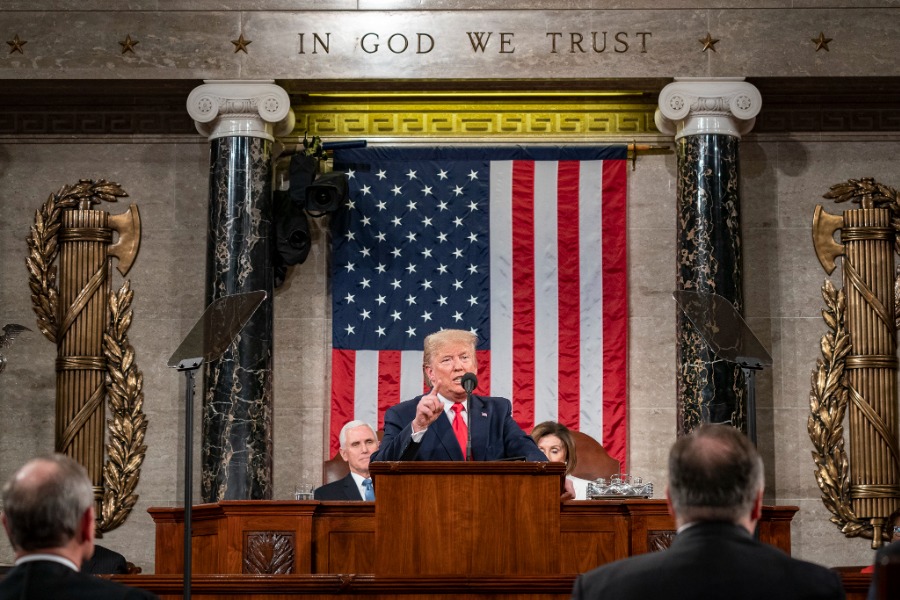The Obama Administration’s Views on the Legality of Intervention in Syria Without Congressional or U.N. Security Council Support
As the Obama administration approaches its end, it is interesting to watch former Obama administration officials debate and disagree about its legal legacy. The most recent episode came in response to the State Department dissenters’ proposals for intervention in Syria to remove Assad.
Published by The Lawfare Institute
in Cooperation With

As the Obama administration approaches its end, it is interesting to watch former Obama administration officials debate and disagree about its legal legacy. The most recent episode came in response to the State Department dissenters’ proposals for intervention in Syria to remove Assad. Ashley Deeks and Marty Lederman argued that the proposed intervention likely would be unlawful under domestic and international law, and sought to tidy up and distinguish some episodes during the Obama administration—especially in connection with the threatened Syria intervention—that seemed to suggest otherwise. In response, Harold Koh refers to the Ashley/Marty post as “puzzling.” He cites “as-yet undisclosed internal administration legal analysis” and some evidence canvassed in his Frankel lecture, to support the claim that “humanitarian intervention in Syria could be lawful under both domestic and international law.”
For what it’s worth, I think Harold has the better of the descriptive argument about the Obama administration’s views about its legal authorities. I won’t go into too much detail in support of this conclusion, as others have written on this at length and I have some pieces coming out in the next few months that go in to depth on these issues. But in brief, the main moves are as follows.
The legality of the 1999 Kosovo intervention was fraught under domestic and international law. OLC did not publish an opinion on it and before 2011 had never relied on it as a precedent in a public opinion. Moreover, the Clinton administration famously sought to argue that the Kosovo intervention was justified but not necessarily lawful, and should not be used as a precedent. The 2011 OLC opinion justifying the intervention in Kosovo was thus significant in two regards. It was the most extensive and comprehensive legal opinion ever in support of unilateral presidential authority under Article II to conduct humanitarian interventions, clearing the way for many months of humanitarian air strikes without congressional authorization; and it cited the Kosovo precedent approvingly and relied on it extensively in support of this authority.
The Kosovo intervention was supported by NATO and the Libya intervention was supported a U.N. Security Council resolution. But the threatened intervention in Syria in 2013 in response to Assad’s use of chemical weapons was supported by neither. And yet the administration’s lawyers still concluded, based in part on the Kosovo precedent, that intervention would have been lawful under domestic and international law. This position was pretty obvious from the Obama administration’s statements at the time, and was confirmed by Charlie Savage in his book, which discussed (among other things) a secret legal memorandum in support of the Syria intervention under domestic and international law. (Charlie recounts the Syrian legal deliberations in more depth in this post today. He reports that Ben Rhodes said that Obama took a dimmer view of his unilateral constitutional power than his lawyers in an important August 30, 2013 meeting. Perhaps so, but the fact is that in the speech the next day in which Obama announced that he would seek congressional support for the Syria intervention, he also said: “I believe I have the authority to carry out this military action without specific congressional authorization.”)
Whether the Obama administration is right on these legal issues is far from clear. And there appears to be no prospect of President Obama taking the dissenters’ advice. But those facts may matter less than that Hillary Clinton is far ahead in the presidential polls and her former State Department lawyer has robust views about the president’s power of unilateral humanitarian intervention and believes that such an intervention in Syria “could be lawful under both domestic and international law.”



.jpg?sfvrsn=6cdd11de_5)

